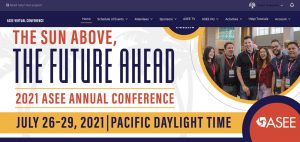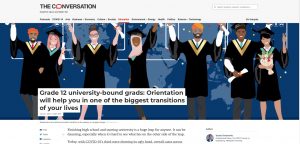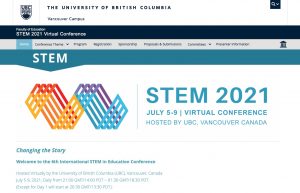I had the opportunity to present and attend at the ASEE 2021 (American Society for Engineering Education) Conference & Exposition (Virtual) (July 26-29, 2021). My presentation was part of a larger study on transdisciplinary knowledge (which in this study, we chose to highlight systems thinking, metacognition, and empathy) in engineering education at UBC Faculty of Engineering with fantastic co-authors and mentors Prof. Susan Nesbit (Civil Engineering), Prof. Peter Ostafichuk (Mechanical Engineering), and Prof. Naoko Ellis (Chemical and Biological Engineering).
While our study focuses on engineering education, transdisciplinary knowledge is also a very relevant discipline across STEM education in all levels (elementary, secondary, and post-secondary education). In fact, as society as whole continues to absorb the brunt of the COVID-19 pandemic, there is an urgent need among schools, learning institutions, and universities to connect STEM programs and curricula with the changing demands of local, national, and international community and stakeholders. Kindly access our presentation as summarised below.
Presentation: ASEE 2021 Annual Conference_July 28 2021
Thank you very much for the funding and support from the UBC Institute for the Scholarship of Teaching and Learning.



